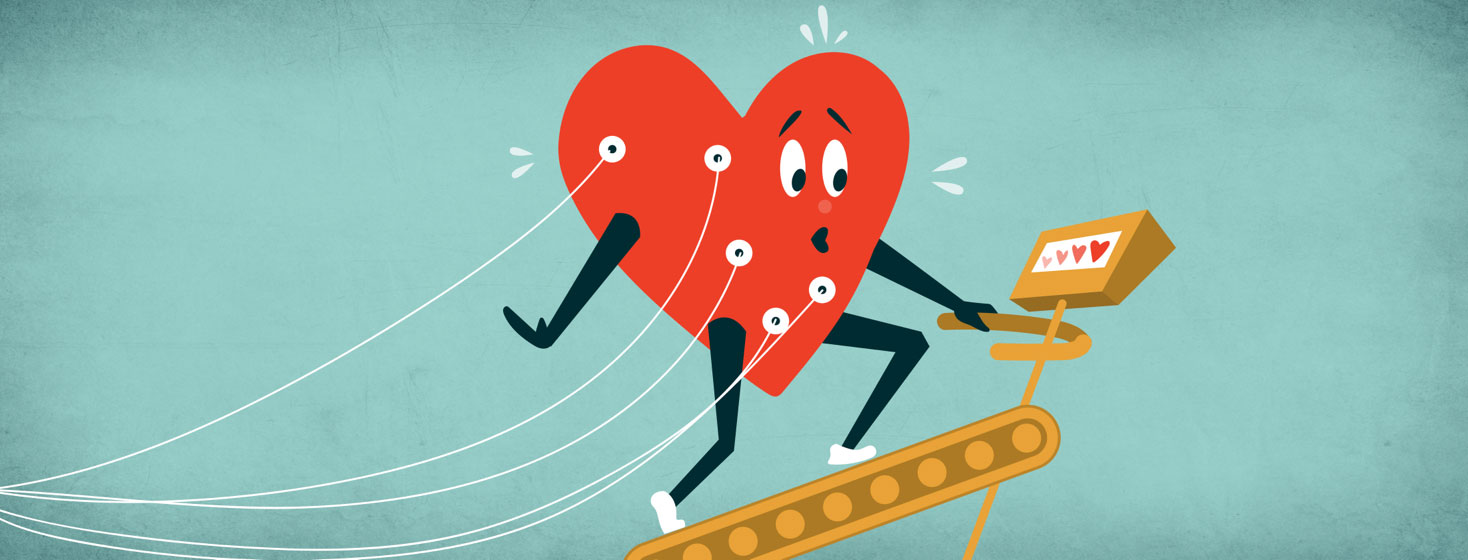Surviving a Stress Test
I was prescribed a stress test a few months back by my cardiologist. At my last appointment, I complained about some chest pain similar to what I experienced the day before my heart attack. At that appointment, the echocardiogram and other testing showed no concerns for my heart. Since I worked out on a treadmill frequently, my cardiologist suggested a stress test to see how my heart was performing at elevated heart rates.
What is a stress test?
There are two different kinds of stress testing situations. I had the one where I elevated my heart rate by walking on a treadmill. If you cannot do this, they can do a chemical stress test and use chemicals to elevate your heart rate. If you're interested in learning more, you can watch a video featuring my cardiologist.
Preparing for a stress test
There was no preparation needed for this test – I didn’t even need to study! I just wore workout clothes and my sneakers to the exam. My medications were taken as prescribed and had a light lunch two hours before my appointment.
I was led back to the room that held an exercise bike, treadmill, and the equipment needed to perform the echo. I had to remove my shirt and wear a hospital gown. My initial EKG, blood pressure, and heart rate were taken. Then, the echo technologist did some initial imaging to document my heart’s behavior at rest.
The test
While still connected to the EKG wires (minus the ones on my legs and arms), I hopped on the treadmill. This treadmill had handlebars to the sides and the front. I held on to the front bars as the test started.
Stage one
The protocol for me was to start at stage one, which was at a speed of 1.7 mph at a 10% incline. This lasted for 3 minutes, at which point my heart rate did increase. During this time, they recorded my EKG and took my blood pressure and level of shortness of breath. I was able to handle this with few issues.
Stages 2 and 3
In stage two, the speed was increased to 2.5 mph, and the incline was 12%, which lasted 3 minutes. My heart rate rose, and I started to experience mild shortness of breath.
For stage 3, the speed was increased to 3.4 mph at an incline of 14%. At this point, I did start to struggle. I closed my eyes and tried to take deep breaths – in through the nose and out through the mouth. I still had to wear a mask, which was difficult and uncomfortable – all I wanted to do was take a deep breath of non-mask air! The staff did continue to monitor my SpO2, which was 97%, indicating I was getting enough oxygen.
Recovery phase
After the treadmill was stopped, I went back to the gurney and had echocardiogram imaging while my heart rate was elevated. I experienced increased shortness of breath and tried my best to control my breathing and calm myself down. The imaging, along with the vitals, continued as I went into the recovery phase, which lastest 6 minutes for me, at which time my heart rate and breathing had returned to normal.
The results
I did well, considering I am on beta-blockers (which keep my heart rate down) and have a low EF. My heart EKG and echocardiogram showed no abnormalities at the elevated rate nor during recovery.
My thoughts
I was very comfortable during this test. At all times, I had the technologist at my left asking me questions, monitoring my EKG, and taking my blood pressure. To my right, I had the echo technician providing encouragement and taking my blood oxygen measurements. Both technicians were incredibly friendly and supportive, making the experience much more pleasant.
The stress test is a bit nerve-wracking, and it isn’t something I’d look forward to, even though I did survive this one. But it does give me more confidence that I can work out at an elevated heart rate and continue to work out my heart and body.
Affected by heart failure? Take our anonymous survey to share more about your experience!

Join the conversation